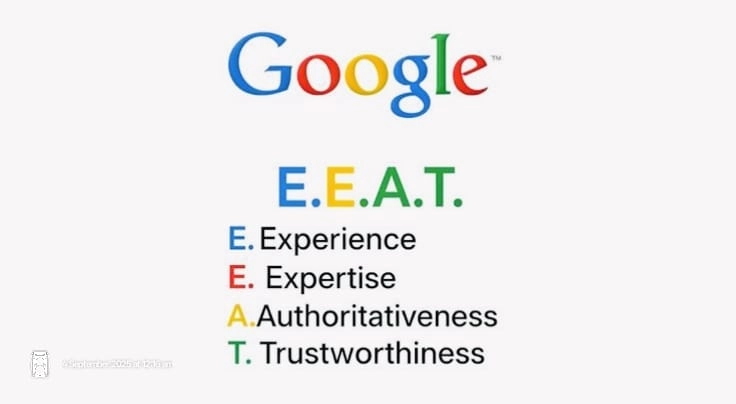EEAT in SEO: Importance and How Beginners Can Improve It

EEAT, which stands for Experience, Expertise, Authoritativeness, and Trustworthiness, is a framework used by Google to evaluate the quality of content and websites. It’s a critical concept in modern SEO, especially since the addition of “Experience” in December 2022. While it’s not a direct ranking factor, it’s a core component of Google’s Search Quality Rater Guidelines, which are used by human raters to assess the effectiveness of Google’s algorithms
The Importance of EEAT in SEO
Improved Search Rankings: Google’s goal is to provide users with the most helpful, reliable, and trustworthy information. By demonstrating strong EEAT, your website signals to Google that your content is high-quality, making it more likely to rank higher in search results.
User Trust and Credibility: EEAT is all about building trust with your audience. When users see that your content is created by someone with real experience and expertise, they are more likely to trust the information and the brand behind it. This leads to better user engagement, which is another positive signal for search engines
Resilience to Algorithm Updates: Websites with strong EEAT are more likely to weather Google’s core algorithm updates. These updates are often designed to reward high-quality, “people-first” content, and a focus on EEAT helps ensure your site aligns with these goals.
Long-Term Brand Growth: Focusing on EEAT isn’t just about SEO; it’s about building a better, more reliable business. It helps you create content that is valuable and useful over time, which can lead to a loyal audience and increased visibility.
How Beginners Can Improve EEAT
For beginners, building EEAT can seem like a daunting task, but it’s a process that can be broken down into manageable steps.ience
This “E” is about demonstrating first-hand, real-world knowledge of the topic you’re writing about.
Share Personal Stories and Case Studies: Use your own experiences, insights, and lessons learned. For example, if you’re writing a product review, include original photos or videos of you using the product.
Create Unique and Original Content: Don’t just rehash information from other websites. Provide a fresh perspective or offer insights that can only be gained from personal experience.
Use Original Visuals: Instead of relying on generic stock photos, use your own images, videos, and graphics to prove you have a hands-on connection to the topic.
2. Expertise
This “E” focuses on showcasing your knowledge and skill in a particular field.
Create a Detailed Author Bio: Every article should have a clear author byline and a bio that highlights their relevant qualifications, certifications, and professional experience.
Produce High-Quality, In-depth Content: Go beyond the basics and provide comprehensive guides, tutorials, and articles that demonstrate a deep understanding of the subject matter.
Define Your Niche: It’s easier to establish expertise in a specific area than in multiple broad subjects. By focusing on a niche, you can become a go-to source for a particular topic.
3. Authoritativeness
This “A” is about your reputation and the recognition you have within your industry.
Earn High-Quality Backlinks: When other reputable websites link to your content, it signals to Google that you are a trusted source. Focus on creating linkable assets that other sites will want to reference.
Guest Post on Reputable Websites: Writing guest posts for well-known blogs in your niche not only helps you reach a new audience but also builds your authority and credibility.
Get Featured in Industry Publications: Seek out opportunities to be mentioned in interviews, podcasts, or industry roundups.
Display Awards and Recognition: If your business or content has received any awards or accolades, showcase them on your website.
4. Trustworthiness
This “T” is the most important component, encompassing the reliability and safety of your website and content.
Ensure Website Security: Make sure your site uses HTTPS encryption to protect user data.
Provide Clear and Transparent Information: Have an easily accessible “About Us” page that explains who you are, a “Contact” page with clear contact information, and a privacy policy.
Cite Credible Sources: Back up your claims with evidence and link to authoritative sources like government websites, academic studies, or well-respected publications.
Display Social Proof: Showcase positive customer reviews, testimonials, and case studies to build confidence in your business or brand.
Be Transparent About Sponsorships: If you have sponsored content or affiliate links, be upfront about them with your audience.
To read more of my content, please check out my webpage: https://haseema.com